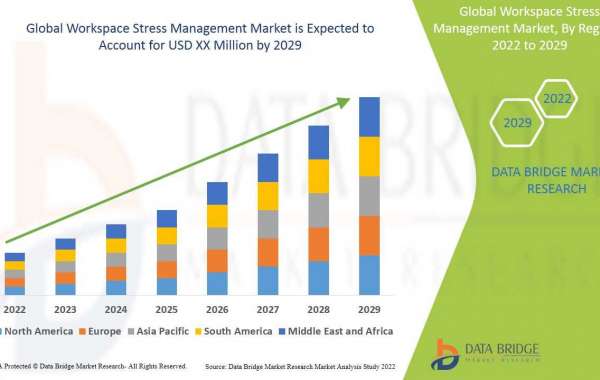Introduction
Thanks to our global focus on mutual growth through trade, people and companies are getting ever-more reliant on supply chains. The internet, and the businesses that operate natively on it to provide value to billions worldwide, are gaining similar prevalence. The importance we place on these super-highways of both goods and information is earned. Thanks to these channels, we have lifted billions out of poverty and enriched lives by giving access to information and communication.
However, we have seen plenty of examples of how unforeseen interruptions in these information pathways can have catastrophic consequences. The Suez Canal blockage of 2018 disrupted global commerce in a manner few have seen. This route, vital for circumventing the Southern tip of Africa, is responsible for 2% of host nation Egypt’s GDP, and sees 12% of international trade pass through it.
The Suez Canal is indispensable, and the 6 days that it was blocked wreaked havoc in global supply chains. Information highways operated by the world’s largest companies face similar challenges, where single blockages of services can have catastrophic, far-reaching effects.
The Centralized Internet
A 2015 study of internet users in the developing world reached some interesting conclusions that can still apply today. While many people were using social networking platforms on a daily basis, they had no idea they were, in fact, using the internet. For up to 11% of Indonesians, Facebook was just Facebook, and the internet was this complex other thing that they did not want to participate in.
While this trend was also apparent in other parts of South-East Asia and Africa, it was the implication of this phenomenon that deserves attention. In the event that Facebook’s servers become unavailable, either due to technical difficulties or through intervention of some sort, many in these regions would be cut off from the wider world.
- In the years after, Facebook itself grew its network to prevent such incidents. The bold purchase of Instagram was overshadowed by its even more shrewd acquisition of Whatsapp.
- The latter is significant because of its peer-to-peer encrypted communication that operates on a totally different infrastructure to the wider Facebook, now META, services.
- Amazon provides users with a similar dilemma, not just for their ubiquity in e-commerce, but because they form the backbone of the internet as we know it.
- With a customer base boasting the largest companies in the world, Amazon Web Services and the cloud infrastructure that accompanies it far outpaces the rest of the company in growth.
- This leads us to a much more serious set of implications, with further-reaching consequences - data privacy.
With a single company controlling as much data as it currently does, the competitive landscape of the free market is under threat. With data being the new oil, the true value is gained from how companies process this raw material. The more data a company has available, the more insights can be gleaned, and none come close to Amazon in this regard.
A New, Privacy-Centric Internet
Data breaches and oversteps are widespread in the tech world and, for all the value they bring, this has proven a prevailing critique. Staying ahead of the curve and ensuring data security is the need of the hour. What if we just didn’t give up information any more?
Cryptocurrency, at its core, is based on users holding onto their own data. With private keys, NFT profile pictures and pseudo-anonymous wallet addresses, we seem to be moving past the old ways of sharing all one’s personal data with the world. Things get even more exciting for users when we consider Ethereum’s true value proposition - a distributed computer, managed by innovators all over the world where anyone can launch a service that they believe will bring value.
Using these building blocks to build distributed applications, an internet where our data is not the fuel that spurs innovation can be a reality. Known as Web 3.0, the next step from the user-generated content-driven Web 2.0 brings control back to users. Achieving these goals while enabling the rapid innovation that global financial markets require faces significant social and regulatory challenges, but the need for services of this kind are more pronounced than ever. The WAHED Ecosystem, powered by WAHED Coin, can be your gateway to contributing to this brand new, private, decentralized internet.
WAHED As your Collaborator in the Decentralized Internet
WAHED is a multifaceted ecosystem, where creating value for users stands alongside the desire for philanthropic giving. The more value one can create, the greater the volume of funds that can be deployed to improve conditions around the world.
At its core, WAHED wants to facilitate the innovator’s journey. With a focus on cutting edge startups and high-tech initiatives, WAHED aims to connect investors with those who are going to change the world, while utilizing blockchain technology to create value. Essential online services can now be decentralized, with the benefits to the user rather than data-mining operations at the center of the value proposition. We could be on the cusp of having a brand new, user-centric Twitter, Facebook or Amazon, and WAHED is here to help make this a reality.
The WAHED Foundation, a Digital Autonomous Organization, or DAO, will serve as the governance brain of the ecosystem, where members decide which ideas should be backed. By closely monitoring progress and adherence to milestones, the WAHED Foundation will ensure responsible deployment of funds i.e start up funding while ensuring that backers are kept in the loop regarding developments, challenges and opportunities.
Conclusion
As the internet grows, we must be deliberate in ensuring that a Suez Canal-style blockage does not occur in our information highway. Decentralizing the flow of information while improving the quality of services is not just possible, but it is the expectation if we wish to supplant the existing giants of the tech world. With users at the center of this decentralized revolution, ensuring privacy is the key, and WAHED is here as your partner to help.
Become a part of the WAHED Ecosystem today, and learn more about how you can partner with us by visiting our website. The decentralized future is almost upon us, and together we can make it a reality.










